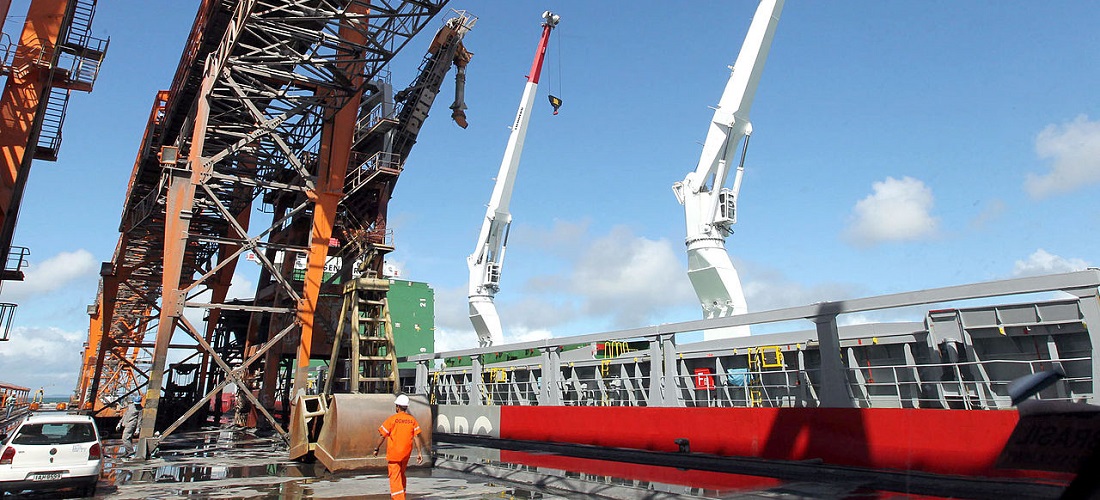
Brazil set to become sustainable ship recycling hub
Jul, 12, 2024 Posted by Gabriel MalheirosWeek 202428
With the country’s extensive coastline and robust maritime industry, many existing facilities, primarily engaged in shipbuilding and repair, have the potential to expand into ship recycling, according to the NGO.
Professor Newton Pereira from the Federal Fluminense University (Universidade Federal Fluminense (UFF) told the NGO that Brazil is likely to become an important destination for ship owners looking for the sustainable disposal of their assets.
From already existing large infrastructure in the States of Rio de Janeiro, Rio Grande do Sul and Pernambuco to strict national regulations on hazardous waste management, from a soon-to-be-approved national bill mirroring the European Union Ship Recycling Regulation to the shift in policy of the country’s oil and gas company Petrobras and the scrapping of Petrobras’ P-32 and P-33 in Brazil, the country stands on the cusp of ‘radical transformation.’
UFF is said to play a crucial role in this transformation through its Center for Sustainable Systems Studies (CESS/UFF), which focuses on hazardous waste management, optimization of recycling methods and the scrap steel market to ensure Brazil has a qualified workforce, innovation and resources needed to support its own solutions for ship recycling.
“At CESS, we are developing RFID (Radio Frequency Identification) and NFC (Near Field Communication) technologies to manage hazardous waste on ships and in shipyards. Our goal is to ensure transparency and traceability in materials disposal. Specifically, we are exploring ways to automate the management of IHMs (Inventory of Hazardous Materials) on merchant vessels, offshore platforms, and abandoned ships scheduled for decommissioning, dismantling, and recycling. We are currently testing smart labels placed throughout vessels, which can be read remotely within seconds using unmanned vehicles,” Professor Pereira explained.
“Additionally, we are working on a project looking at ways to destroy the hazardous characteristics of for example asbestos and glass wool by transforming them into marketable products such as glass.”
According to recent figures, dozens of fixed and floating oil and gas platforms and more than 300 large commercial ships regularly operating in Brazilian waters will be retired in the next decade.
Brazil’s potential in ship recycling will be further explored by several experts, including Petrobras’ representatives and Professor Pereira, at the upcoming Ship Recycling Lab in Lisbon in October 2024.
“The Lab is the perfect opportunity to discuss and present alternatives to dirty and dangerous shipbreaking. The concept of an ethical circular economy, which is the connecting thread of the event, represents the cornerstone for a cleaner industry aligned with the sustainable development goals proposed by the United Nations. I am looking forward to highlighting Brazil’s initiatives and capabilities in this forum and potentially forging new collaborations,” Pereira added.
In May 2024, a memorandum of understanding (MOU) was signed to explore the feasibility of establishing a ship recycling and decommissioning yard in Porto Central, Brazil. The MOU, signed between Porto Central and M.A.R.S., Europe A/S (a subsidiary of Modern American Recycling Services), is said to mark an important step towards a sustainable ship recycling future.
-
Economy
Jan, 12, 2022
0
Brazil–Arab trade balance is highest since 2014
-
Ports and Terminals
Mar, 27, 2019
0
Cargo handling at Antonina up 180% in the first two months of 2019
-
Grains
Aug, 30, 2022
0
Brazil expects 151.6Mln tonnes from 2022/23 soybean crop
-
Ports and Terminals
Jan, 28, 2021
0
Santos Brasil completes modernization of Tecon Vila do Conde



